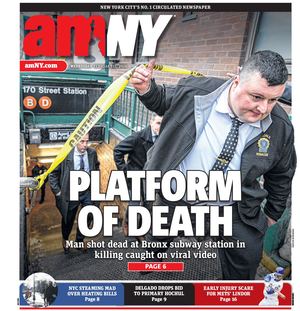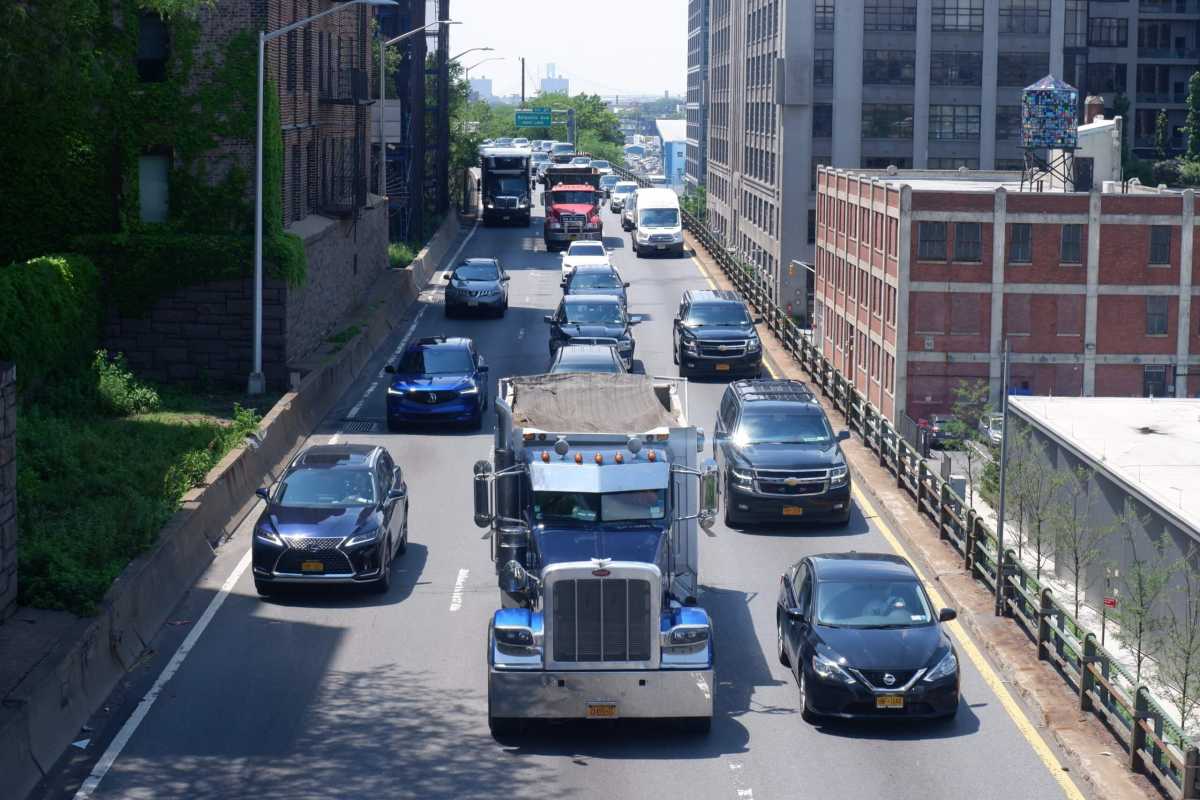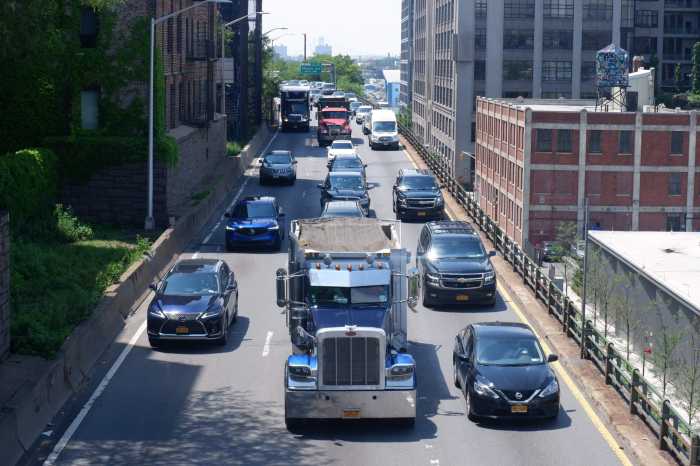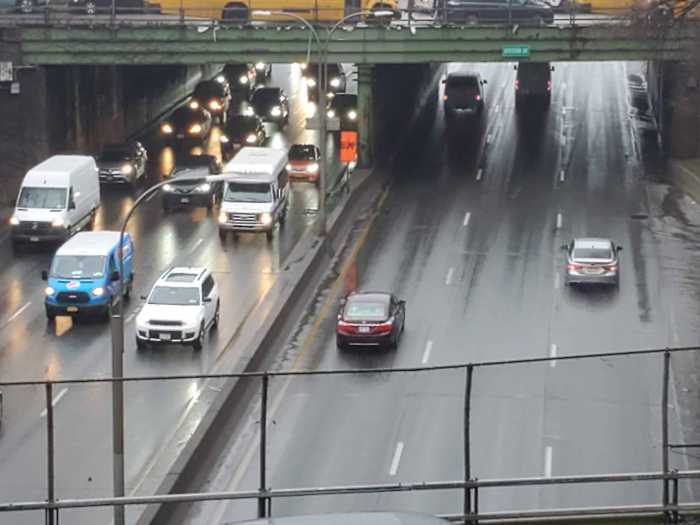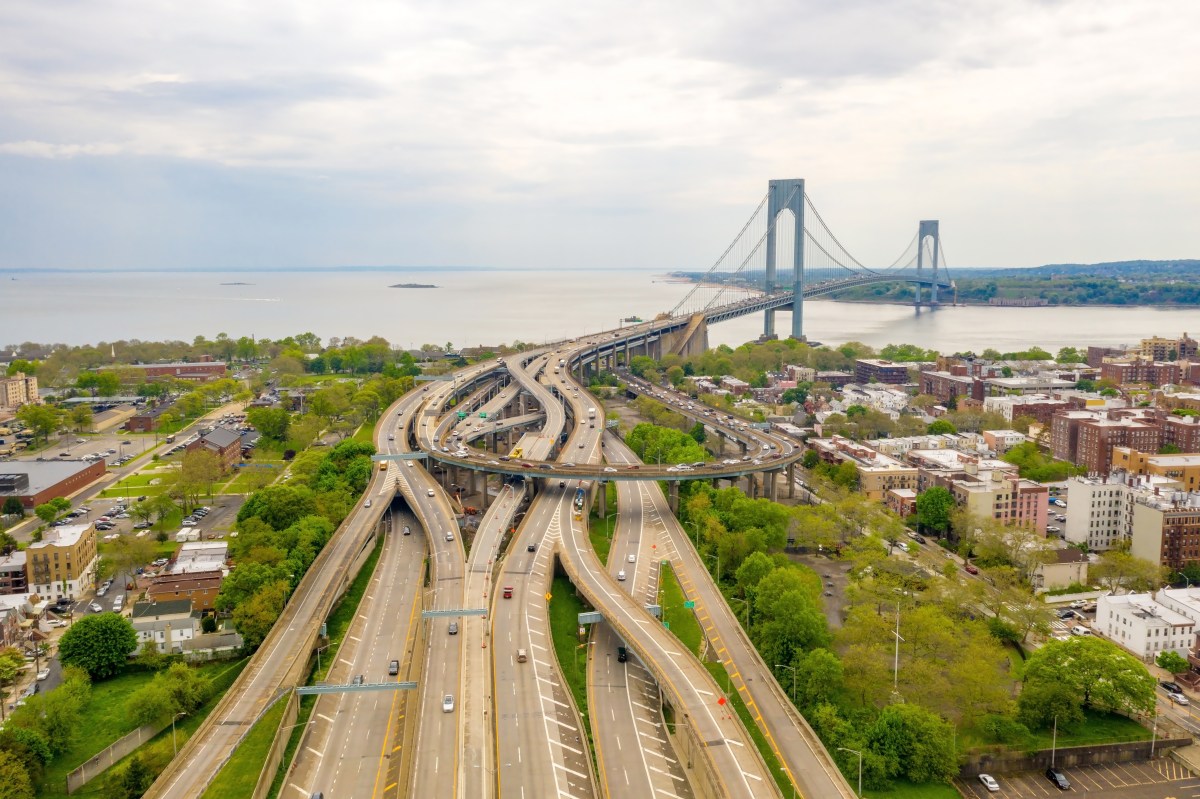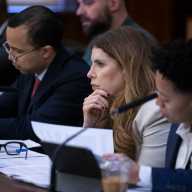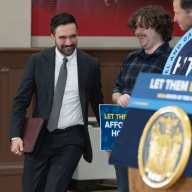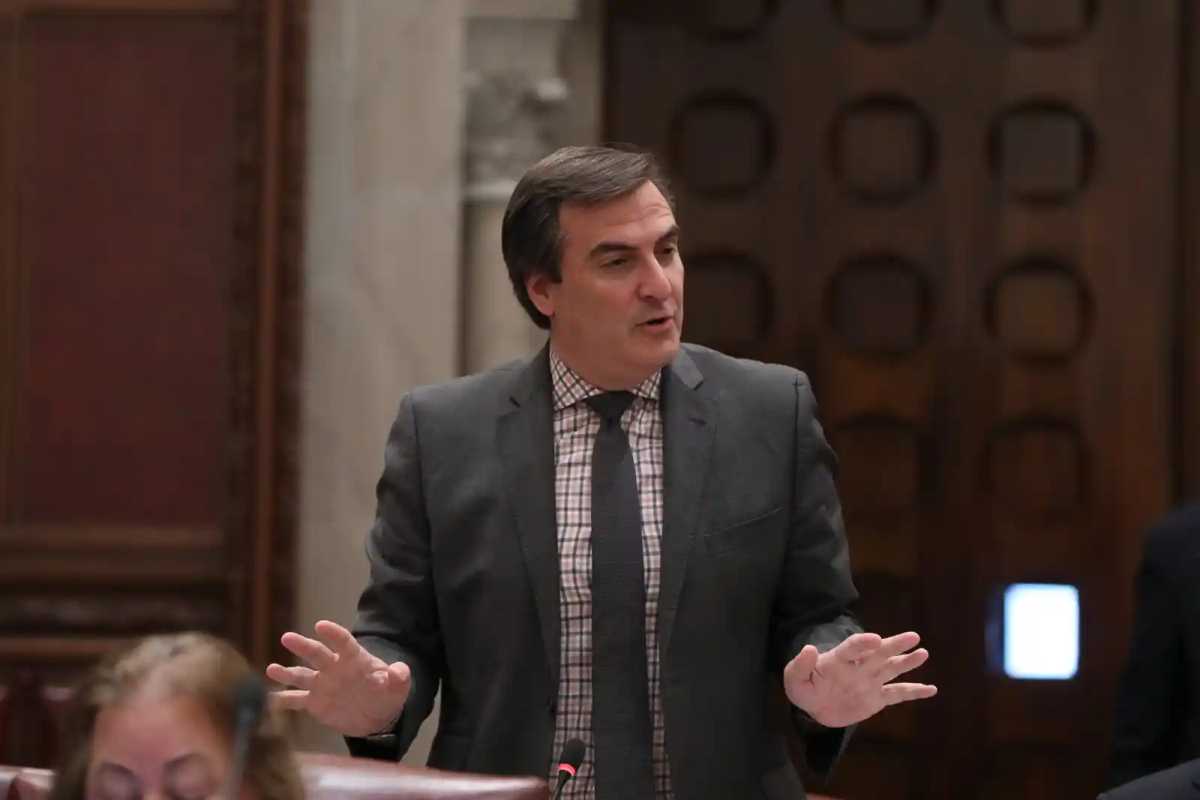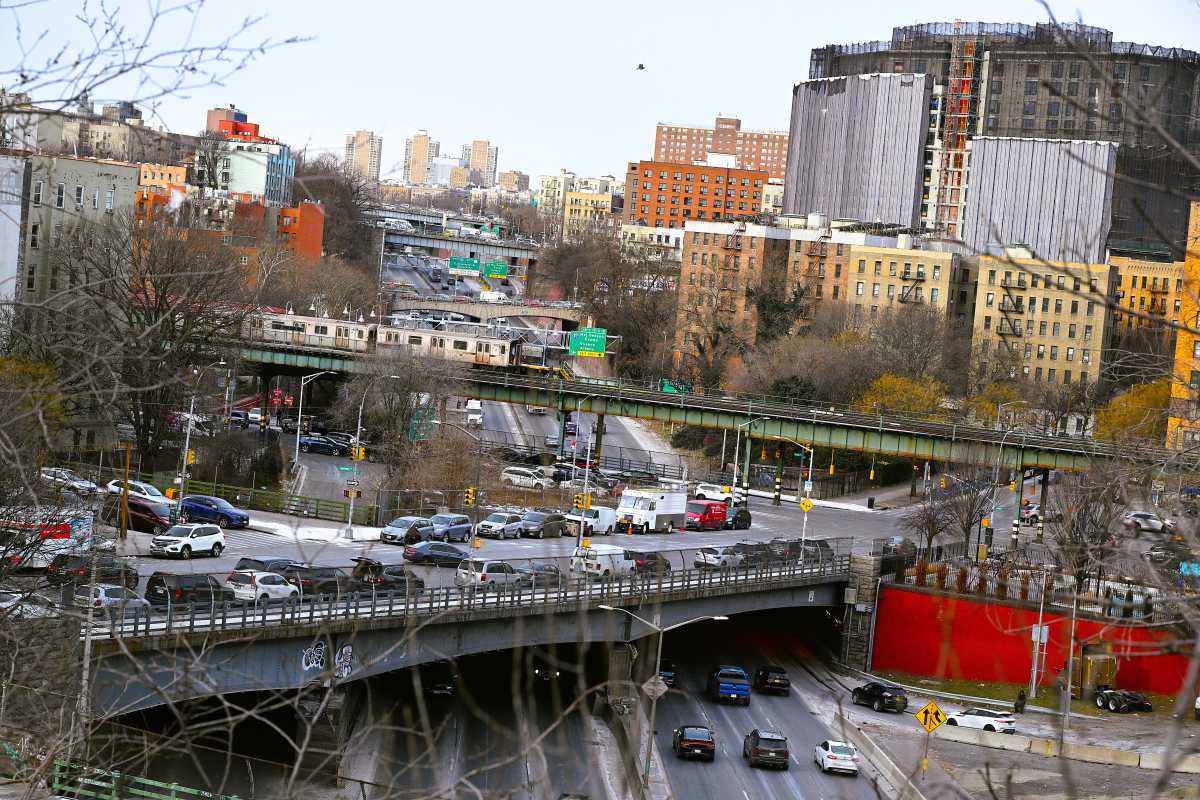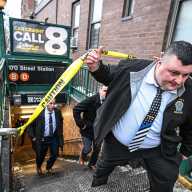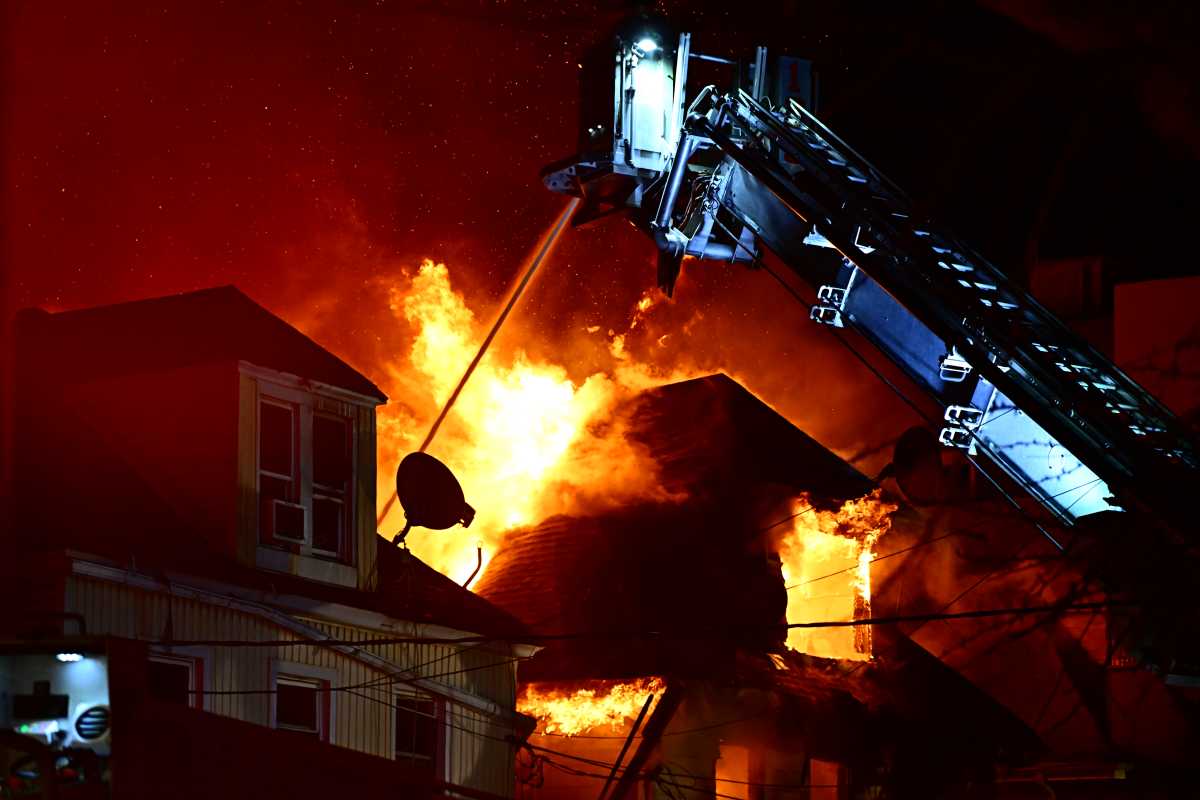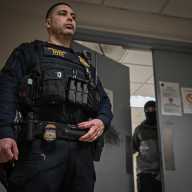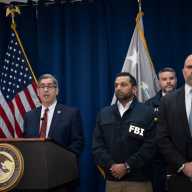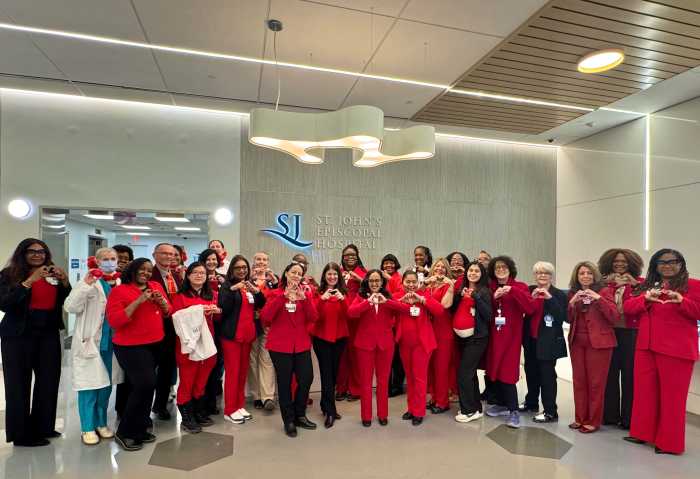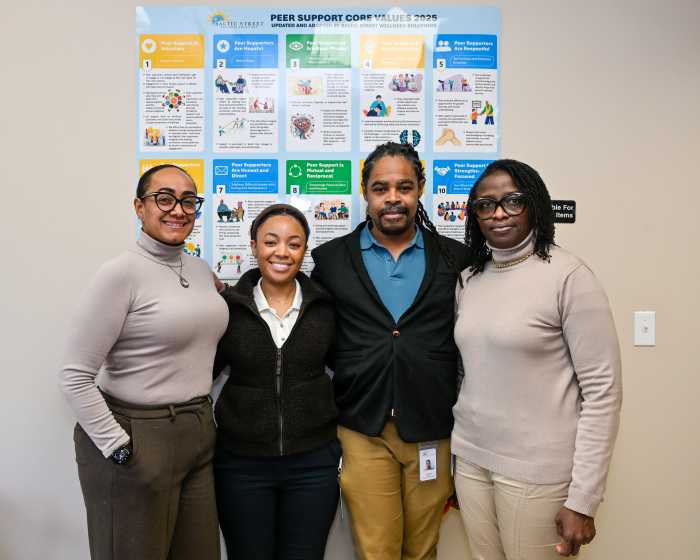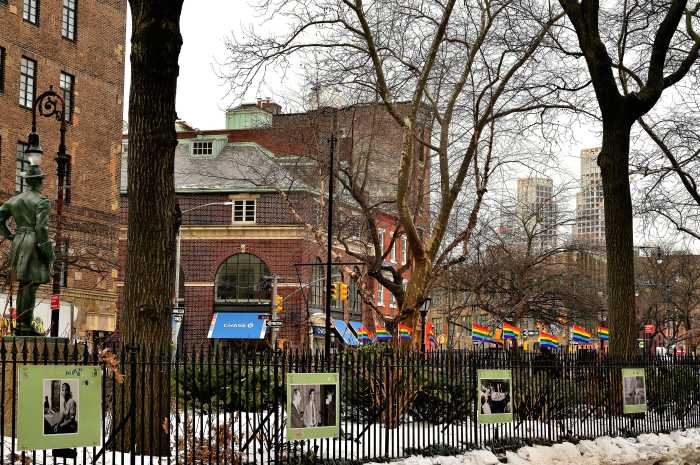Mayor Eric Adams is urging the federal government to expedite the long-delayed Brooklyn-Queens Expressway overhaul, warning that without immediate action, the city may be forced to impose truck weight restrictions and face massive traffic disruptions.
In an Oct. 15 letter to U.S. Transportation Secretary Sean Duffy, Adams asked the feds to publish a Notice of Intent by Nov. 14 to begin the federal environmental review for the deteriorating 1.5-mile stretch of the BQE between Atlantic Avenue and Sands Street.
The mayor called the aging triple-cantilever “a backbone of the regional and national economy” and said further delay “risks consequences to public safety and the regional supply chain.”
The letter marks a late-term push by Adams to advance the project before leaving office in January. He cautioned that if the city cannot move forward soon, structural issues may force “significant weight restrictions in the short term and permanent closure in the medium term,” diverting heavy traffic onto local streets and causing “billions of dollars in economic losses.”
BQE vision ‘very murky,’ Brooklyn groups say
Local environmental and neighborhood organizations, which have been advocating against the city’s plans to overhaul and “potentially expand” the aging BQE, said they were blindsided by the mayor’s move to push forward.
The groups have yet to receive a substantial response to their May 28 letter to Gov. Kathy Hochul, Adams, and state and city transportation leaders, urging them to abandon the NYC Department of Transportation’s design plans that would rebuild the heavily used thoroughfare before the official environmental review begins.
“One of the things that’s still unclear to me, and I think unclear to many in the community, is what exactly is going into this environmental review that they hope to start,” said Lara Birnback, executive director of the Brooklyn Heights Association, in an interview with amNewYork.
“So not only are we not really in favor of beginning an environmental review now, we as a community don’t have a clear understanding of what exactly is being studied, what their plans are? What do they want to see happen? It’s very murky.”
One of NYC DOT’s proposals includes a full-scale rebuild of the BQE’s crumbling triple-cantilever section — also known as “BQE Central” — the 1.5-mile stretch between Atlantic Avenue and Sands Street in Brooklyn Heights. Other concepts include capping portions of the BQE trenches in nearby neighborhoods. The BQE Central segment is the only portion of the expressway owned by the city and has its own separate plan.
One idea would be a “stacked” design, similar to the current three-tier structure of the triple-cantilever but with fewer traffic lanes jutting outward.
Birnback’s organization is a founding member of the BQE Environmental Justice Coalition, which has called for short-term safety repairs and a broader, community-led planning process, rather than an immediate federal review that could clear the way for a major rebuild.
“We support robust short-term repairs to keep the structure safe,” Birnback said, “but pouring billions of dollars into a highway that’s outlived its life — and that’s contributed to asthma, air pollution, and noise — would be a mistake.”
While city officials have said the environmental review would study multiple design alternatives and include public input, Birnback said residents question whether that process will be meaningful. “People feel the input we’ve already given wasn’t really considered,” she said.
The USDOT’s Federal Highway Administration is currently reviewing the notice of intent packages from New York City and the State’s transportation agencies, but has not indicated when a decision will be made.
If the federal agency does not act on Adams’ plea, the project may ultimately fall to the next administration at City Hall. With Adams set to depart in January and the White House continuing to cut funding for New York infrastructure projects, the BQE’s future remains uncertain.
Looking ahead, Birnback said the coalition hopes to work constructively with whoever succeeds Adams.
“We’ll continue to pursue our goals and work collaboratively with any new administration — city, state, or federal — to help them understand what communities along the BQE corridor are asking for,” she said.
